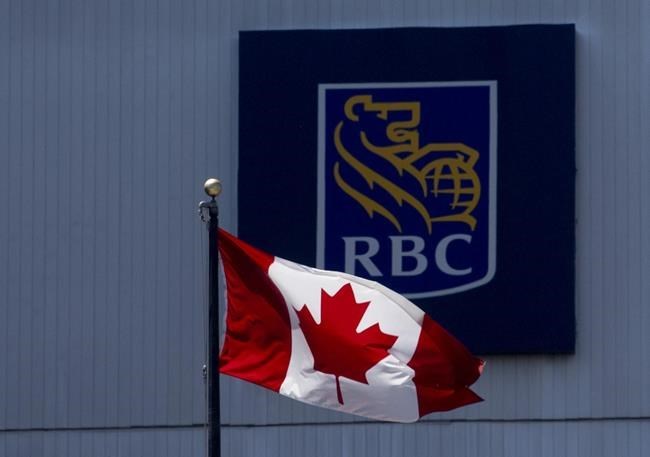TORONTO — RBC chief executive David McKay says that while the COVID-19 Delta variant could slow the economic recovery, it shouldn't be enough to halt the current momentum.
Speaking on an earnings call Wednesday, he said that given Canadian vaccination rates, the bank isn't anticipating the kind of economic shutdown the country saw last year and into early 2021, and instead expects only a slowing of the return to work and full reopening.
"What's going to happen with the Delta variant, it may pause things for a month or two as we have to work through and make sure we don't overwhelm the health system. It's a little concerning to see the numbers," he said.
"But that will not, I think, upend the majority of the momentum we have. So still very positive about the continued progress on reopening the economy through the next 12 to 24 months."
Along with the impacts of COVID-19 variants, he said the bank is watching other challenges to global growth including the inconsistent global vaccine rollout, supply chain disruptions, rising geopolitical risk and continued global travel restrictions.
The bank, however, is encouraged by economic indicators such as rising credit card spending and business investments, draws on operating working capital lines and the growth of term asset lending.Â
"You're seeing all the signs of economic confidence," said McKay.
The bank has also seen significant mortgage growth, up $37 billion year over year including over $9 billion in the third quarter, a growth trend that McKay said he expects to continue, though at a slower rate than what's happened over the "exceptional" last year.
Rising mortgage loans have coincided with a big spike in home prices, but McKay said the bank isn't worried about the quality of its credit book so much as the long-term macroeconomic issues.
"Where I do worry," he said, "is the more cash flow that consumers are putting in to housing stock, the less is available to drive the economy. So I think all policy-makers are worried partly as well about long-term economic drag from that much cash flow going into servicing housing."
He stopped short of commenting on any specific housing policy proposals put out in the election, which have covered everything from banning blind bidding and foreign homebuyers to rental subsidies and supply commitments, saying that policies are required that balance the needs, prosperity, and happiness of Canadians.Â
For now, mortgage loans helped boost RBC earnings, though the bank saw much bigger gains from the further winding down of its provisions for credit loss.
Earnings came in at $4.3 billion, or $2.97 per diluted share in the quarter, up from $3.2 billion or $2.20 per diluted share in the same quarter last year.Â
The bank reported a $540 million reversal on its provisions for credit losses in the quarter ending July 30, compared with the $675 million it set aside for losses last year.
Revenue totalled $12.8 billion, down from $12.9 billion last year.
Adjusted earnings per share totalled $3 per diluted share for the quarter compared with an adjusted profit of $2.23 per diluted share a year earlier.
Analysts on average had expected a profit of $2.71 per share, according to financial market data firm Refinitiv.
The credit loss provisions were a key driver of the analyst beat, said John Aiken, the head of research in Canada forBarclays, in a note.
"Provisions were significantly below expectations on both a performing and impaired basis, which we estimate added roughly $0.30 per share to earnings. Impaired loan balances were down across all geographies with a significant drop off in new formations."
While the earnings were roughly in line with expectations outside the boost from provisions, Aiken said he was encouraged that the bank showed strength in higher-multiple businesses like retail banking and wealth management.
RBC said its personal and commercial banking business earned $2.11 billion, up from $1.37 billion a year ago, helped by a reversal in its provisions for credit losses.
Wealth management reported a profit of $738 million compared with $562 million in the same quarter last year, while RBC's insurance business earned $234 million, up from $216 million a year ago.
RBC's capital markets arm earned $1.13 billion, up from $949 million in the same quarter last year, helped by the reversal in its provisions for credit losses and record corporate and investment banking revenue.Â
Investor and treasury services saw net income of $88 million, up from $76 million a year ago.
This report by The Canadian Press was first published Aug. 25, 2021.
Companies in this story: (TSX:RY)
Ian Bickis, The Canadian Press

